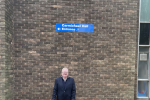As the seventeen-year anniversary of the SNP assuming power at Holyrood approaches, our NHS is mired in a state of crisis and this a damning indictment of their record in power.
To pick out two vital areas of the healthcare system in GP services and waiting times for patients, both are experiencing severe difficulties under the SNP.
The most regular way people come into contact with the health service is through medical appointments at their GP practice.
However, GP services in Scotland are now experiencing considerable strain.
For example, ten percent of GP surgeries across Scotland closed in the ten-year period from 2012 to 2022. Nine percent of the remaining practices have stopped accepting patients.
On top of this, A Royal College of General Practitioners Survey also established that around one-third of GP’s do not expect to be working within the NHS in five years time.
Clearly, this situation is incredibly worrying and there is an urgent need for it to be remedied.
The length of time that hundreds of thousands of patients across Scotland are having to wait before gaining access to the required healthcare support is deeply troubling.
Despite the hard work of our dedicated healthcare staff, one in seven Scots – more than 800,000 individuals – are currently on an NHS waiting list.
In A&E, large numbers of Scots are continually having to wait longer than the SNP Government’s four-hour target for treatment.
For instance, in the week ending 18th February, only 62.7 percent of patients received medical care within four hours. A total of 1,539 people were forced to wait for over 12 hours.
To take a more localised example, at the Queen Elizabeth University Hospital – part of the NHS Greater Glasgow and Clyde health board area for Eastwood – less than one-third of patients were seen within the four-hour target in the first week of the New Year. That is hugely concerning.
The crisis in our NHS has been allowed to continue for far too long and in February, Scottish Conservatives brought forward a comprehensive plan to tackle a range of major problems for our health service including GP services and waiting times.
Our proposals set out a commitment to recruit 1,000 more doctors and invest 12 percent of the NHS budget into GP surgeries.
Alongside the hiring of more staff, the increased investment in our GP services would make more appointments available and allow for the opening of new facilities.
On waiting times, it is clear that they must be reduced.
To achieve this aim, best practice would be standardised so the NHS can organise more procedures in a day through the introduction of Super Saturdays, twinning theatres and off-peak scanning.
A new maximum waiting time should also be put in place for each major NHS metric to ensure that even when the healthcare system is experiencing severe pressures, patients can still receive medical care within a reasonable period.
Scottish Conservatives have set out a clear plan to properly address serious problems in the NHS and I urge the Scottish Government to engage constructively with our proposals.

